In the first week of December, we had the opportunity and the pleasure to participate in the Open America event in Brazil, which brings together prestigious international meetings dedicated to the research, publication and use of open data on topics such as transparency, access to information, open government, civic technologies, data journalism, digital government, accountability and equity.
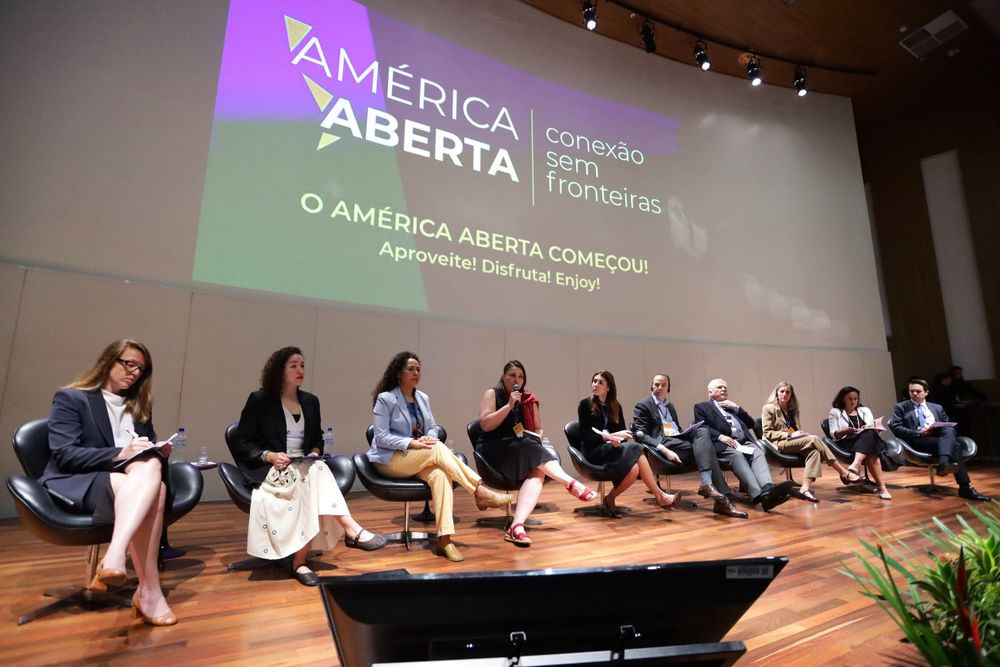
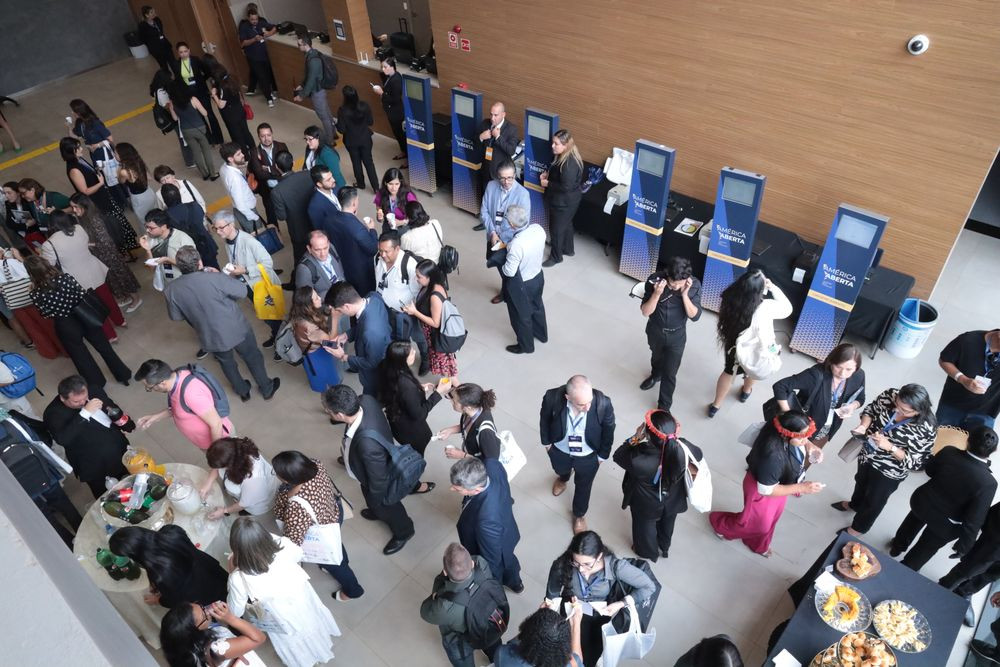
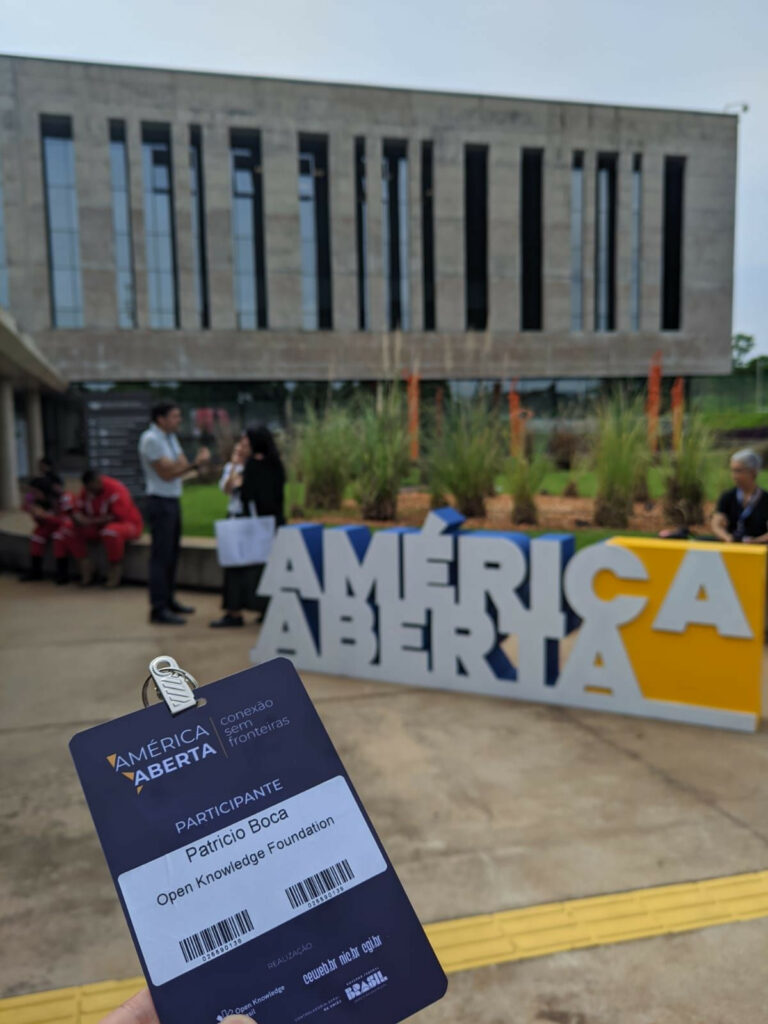
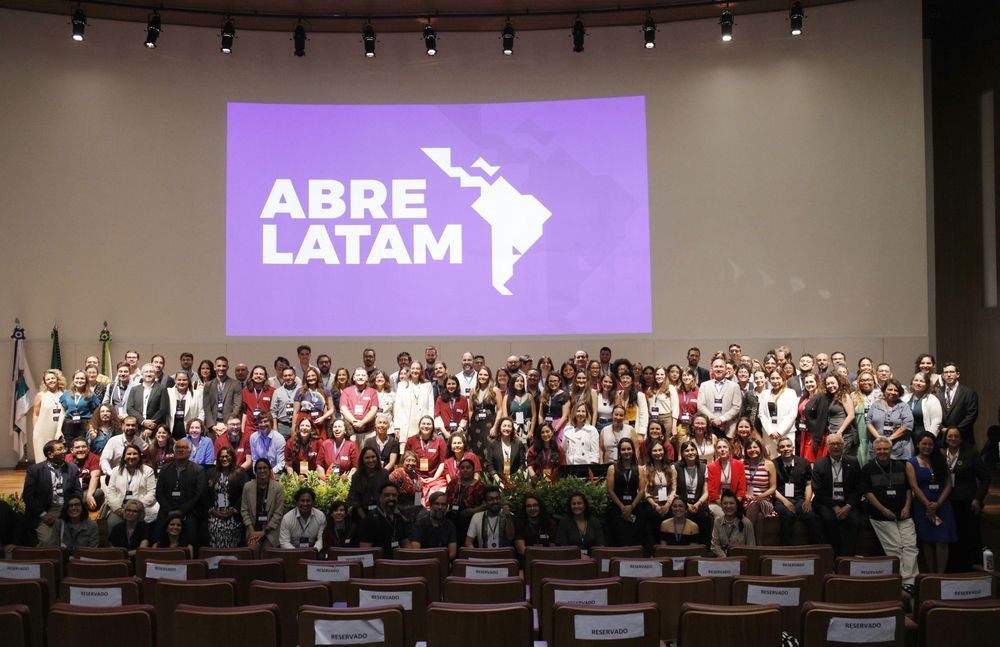
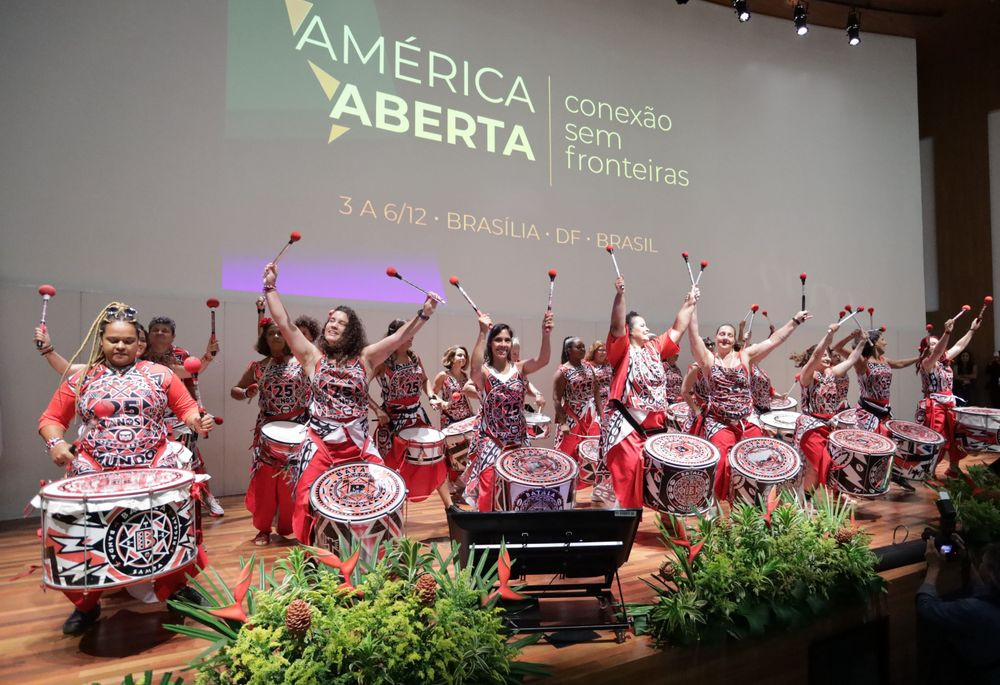
The event was a great success, with hundreds of people in attendance and, we dare say, representatives from every state in the Americas. We are also proud that one of our chapters, Open Knowledge Brazil, was a co-organiser of such an event.
One of the main features of the event was its multidisciplinary nature. It brought together people from civil society, journalism and government. In addition, the climate crisis and the strengthening of democracy were two of the main axes of discussion and debate.
The agenda for the event was huge, so there was a lot to choose from. To continue our Open Goes COP line of work, we decided to prioritise talks related to the climate crisis. Some of the talks were: Climate Change, Just Energy Transition and the Power of Open Data in Building Resilient Societies, Resilient Cities: Collaboration, Data and Openness in the Face of Climate Change, and Data and Natural Disasters. From all of them, we drew the following lessons (which are very much in line with our experiences and actions):
- There is a huge lack of tools and capacity.
- It is essential to start generating data for disaster response.
- An important role for civil society is to provide capacity and perspective to governments in times of crisis.
- There is a huge gap (in terms of communication) between activists and citizens. The same is true between government and citizens; government communication needs to be transformed.
- Moments of crisis generate voluntary initiatives that inform the state, the challenge now is how to institutionalise such efforts.
- The need to include the vision and voices of young people in the movement.
Interdisciplinarity and communication as transversal axes: the role of the Open Data Editor
If we have to highlight two transversal axes of the whole event, they are:
- The need for interdisciplinary work
- Giving priority to communication efforts (something that was also discussed a lot in the tracks on strengthening democracy).
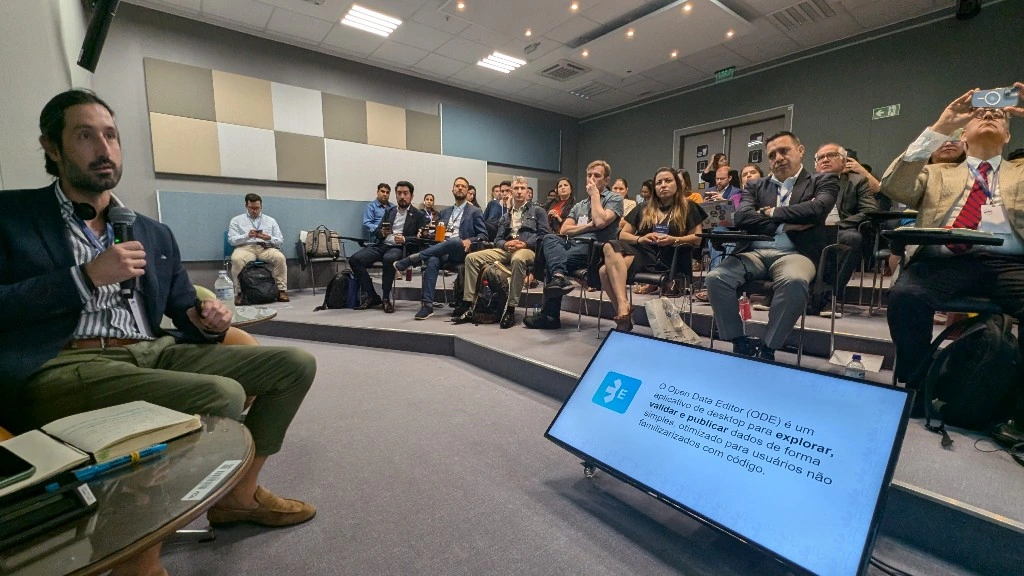
These axes gave us the starting point for our presentation of the Open Data Editor, as it is a tool born to improve the publication of data in non-technical communities. Interdisciplinarity is a key element in the development of the tool, which we put into practice with our two pilots in organisations whose field of work is not open data. In addition, the second focus of the Open Data Editor is the translation of technical language for non-technical audiences and the publication of a course for all audiences on principles and best practices in data publishing.
We are very happy with the participation and reception of the tool in the community, we received very interesting feedback and contacts from communities and small organisations interested in the pilot programmes. We have also been approached by a number of activists asking for opportunities to work with the tool.
We are happy that the work we have been doing this year meets and contributes to solving the main needs of a vibrant community like America Aberta. The event left us with many lessons learned and many expectations for the next steps of the Open Data Editor.








